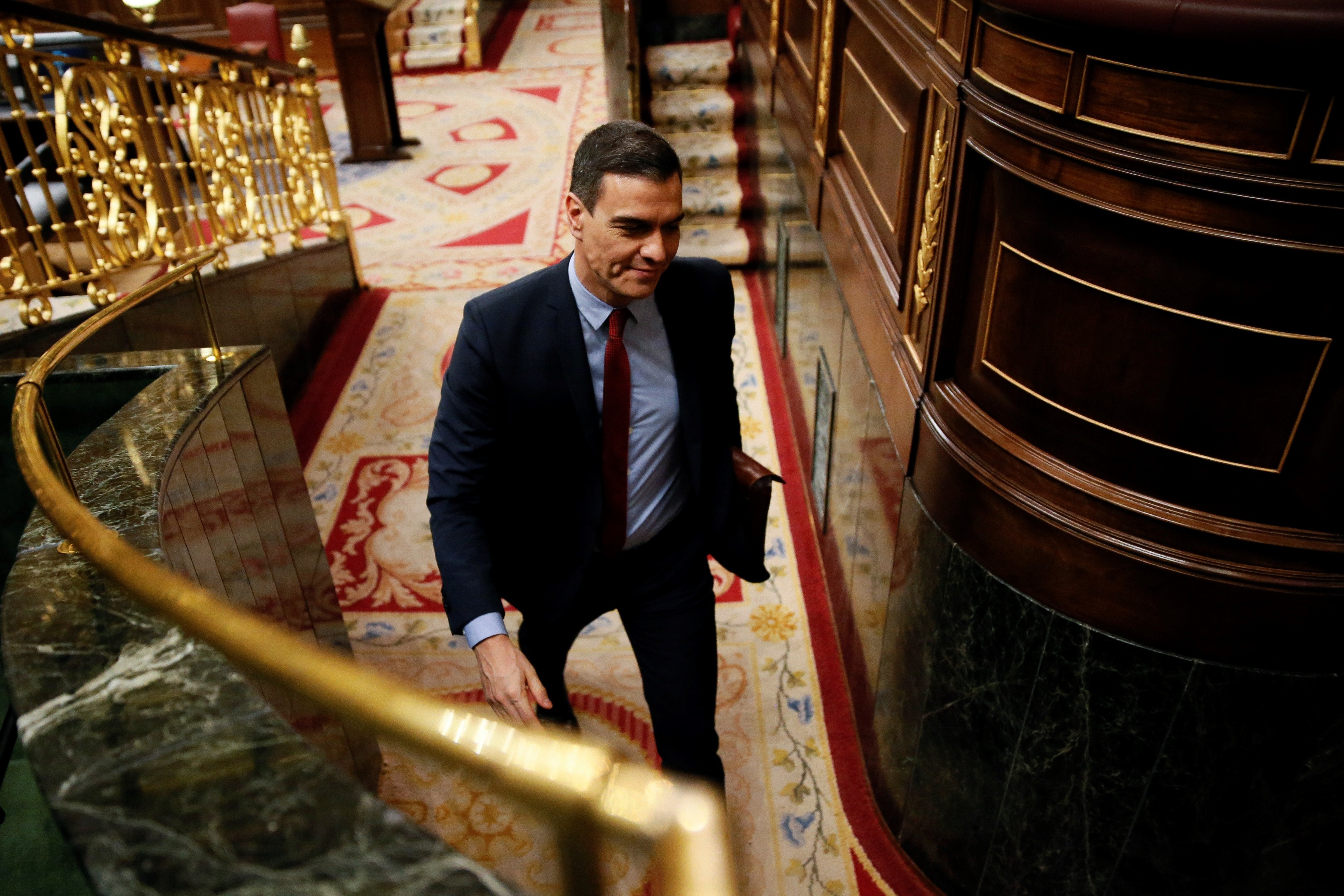For the third time, Spain's state of alarm due to the coronavirus crisis will be extended, this time until May 9th. Prime minister Pedro Sánchez won the crucial vote in the Congress of Deputies this Wednesday, with the next period set to include a first step towards easing the lockdown: specifically, the new controlled permission for children under 14 to go outside. However, the Spanish government did not receive the endorsement of the house for its management of the epidemic. Criticism came both from the right-wing opposition parties and from the very groups which voted the Socialist-led coalition into power, with the Catalan pro-independence deputies speaking out loudly against Pedro Sánchez's executive, a strong critique on the day that the government is 100 days old.
The key element, however, was the vote on extending the exceptional constitutional condition known as the state of alarm, which has to be approved every fortnight. This time, there were more votes against the government than two weeks ago, as well as some reluctant sí votes and abstentions. A total of 269 votes in favour (but not presented as blank cheques), including those of the coalition parties PSOE and Unidas Podemos, as well as the PP, Cs, Más País, PNV, BNG, and Compromís. There were 16 abstentions, those of the pro-independence parties ERC from Catalonia and EH Bildu from the Basque Country. And there were 60 votes against: those of far-right Vox, and two Catalan pro-independence parties, the CUP and JxCat. The Spanish government's improvisation has been the perfect fuel for an avalanche of criticism and reproaches.
The debate in the lower house came the day after the Spanish government's latest flip-flop: announcing steps to ease confinement for children, who have been almost completely retained inside their homes for the last 5 weeks, the Sánchez executive initially said that youngsters could only accompany adults to the supermarket, pharmacy or bank, but could not just go for a walk with them. This policy mis-step led to derision from almost all quarters. The government was also criticized for its recentralization, which Sánchez continues to deny.
During his speech to the chamber, the Spanish PM again avoided any self-criticism. He called yesterday's last-minute rectification an "ability to listen." He did nothing more than set out his plan for de-escalation, which he wants to start slowly, starting in mid-May. The process will be asymmetrical territorially - not necessarily by autonomous communities - and the autonomous governments themselves will collaborate. Of course, it will all be led from the centre, by health minister Salvador Illa, with special powers to issue orders. He also agreed to reactivate the dialogue table with the Catalan government, at the request of ERC's Gabriel Rufián. However, it will happen "when the conditions are right."
On the renewed accusations of recentralization, via the single command imposed as part of the state of alarm, Sanchez again denied the charge. "I believe in the virtues of the autonomous state," he said. He explained that the planned reconstruction pact is to include an "inter-institutional agreement" with autonomous governments and local bodies, and that these bodies will also be taken into account when planning the de-escalation.
Sánchez-Casado distrust
Despite Sánchez having had some rapprochemente this week with PP leader Pablo Casado as he tries to set up a national reconstruction plan - converted into a parliamentary committee to try and satisfy the PP - the two leaders have once again exhibited mutual distrust today. Each accused the other of an unwillingness to reach an agreement.
Meanwhile, the most hyperventilated words of all were uttered by Vox leader Santiago Abascal, who demanded the resignation of Sánchez and his government for having "turned Spain into a gigantic Hugo Chávez-style prison that works with ration cards". The far-right leader went as far as to say that the Spanish prime minister is "a danger to life" and said he was carrying out "the worst health management of this pandemic in the world."
Increasingly distanced from the independence parties
Of the three Catalan pro-independence parties in the Spanish Congress, ERC was the only one to abstain today, and it did so saying that it was "closer to a no than ever." Gabriel Rufián spoke out especially strongly against the continued recentralization of competencies at a time when Spain is beginning to ease its restrictions. For this reason, he demanded the restoration of autonomous community powers "from this moment onwards". He also warned Sánchez that none of the WHO conditions for starting a process of relaxation of lockdown have been met.
The Carles Puigdemont-led JxCat party today changed its abstention to a no. Parliamentary spokesperson Laura Borràs harshly criticised the coalition government's crisis management: "they were not quick to react but the measures taken are certainly reactionary". She warned Sánchez that his credit was running out and that he was not on the right track: "They decreed lockdown late and badly and they will do even worse when they lift it."
The third pro-independence group, the left-wing CUP repeated its no vote from two weeks ago. MP Mireia Vehí accused the Spanish government of using the state of alarm decree to "cut rights", allow the police to "act with impunity" and to "recentralise".

